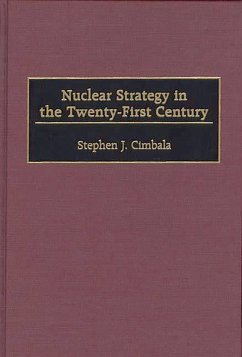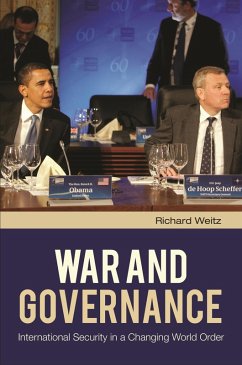
Peacekeeping in the Abyss (eBook, PDF)
British and American Peacekeeping Doctrine and Practice after the Cold War
Versandkostenfrei!
Sofort per Download lieferbar
52,95 €
inkl. MwSt.
Weitere Ausgaben:

PAYBACK Punkte
26 °P sammeln!
Military organizations are cultures, and such cultures have ingrained preferences and predilections for how and when to employ force. This is the first study to use a comparative framework to understand what happened with the U.S. military endeavor in Somalia and the British effort in Bosnia up to 1995. Both regions were potential quagmires, and no doctrine for armed humanitarian operations during ongoing conflicts existed at the outset of these efforts. After detailing the impact of military culture on operations, Cassidy draws conclusions about which military cultural traits and force struct...
Military organizations are cultures, and such cultures have ingrained preferences and predilections for how and when to employ force. This is the first study to use a comparative framework to understand what happened with the U.S. military endeavor in Somalia and the British effort in Bosnia up to 1995. Both regions were potential quagmires, and no doctrine for armed humanitarian operations during ongoing conflicts existed at the outset of these efforts. After detailing the impact of military culture on operations, Cassidy draws conclusions about which military cultural traits and force structures are more suitable and adaptable for peace operations and asymmetric conflicts. He also offers some military cultural implications for the U.S. Army's ongoing transformation. The first part of the study offers an in-depth assessment of the military cultural preferences and characteristics of the British and American militaries. It shows that Britain's geography, its regimental system, and a long history of imperial policing have helped embed a small-war predilection in British military culture. This distinguishes it from American military culture, which has exhibited a preference for the big-war paradigm since the second half of the 19th century. The second part of the book examines how cultural preferences influenced the conduct of operations and the development of the first post-Cold War doctrine for peace operations.













